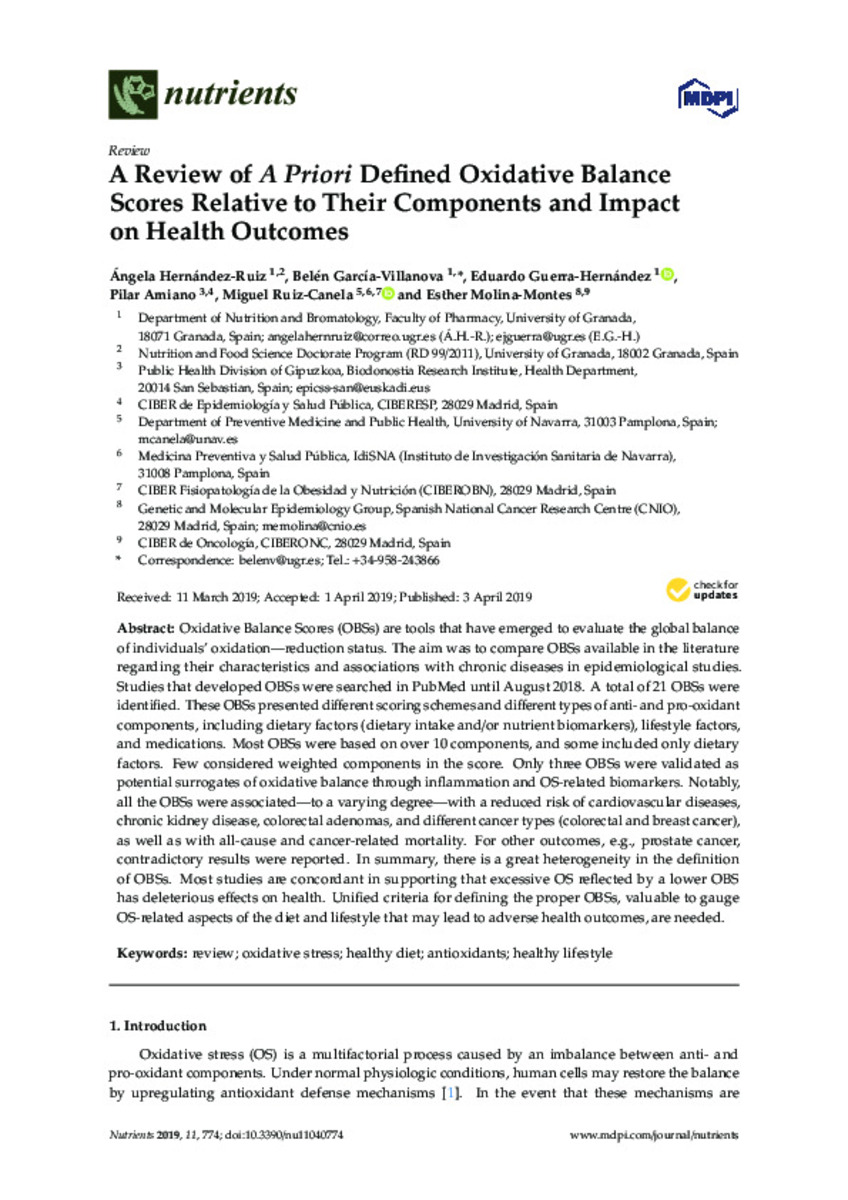A review of a priori defined oxidative balance scores relative to their components and impact on health outcomes
Keywords:
Review
Oxidative stress
Healthy diet
Antioxidants
Healthy lifestyle
Note:
© 2019 by the authors. Licensee MDPI, Basel, Switzerland. This article is an open access
article distributed under the terms and conditions of the Creative Commons Attribution
(CC BY) license (http://creativecommons.org/licenses/by/4.0/).
Citation:
Hernández-Ruiz, Á, (Ángela); García-Villanova, B. (Belén); Guerra-Hernández, E. (Eduardo); et al. "A review of a priori defined oxidative balance scores relative to their components and impact on health outcomes". Nutrients. 11 (4), 2019, 774
Statistics and impact
0 citas en

0 citas en

Items in Dadun are protected by copyright, with all rights reserved, unless otherwise indicated.








